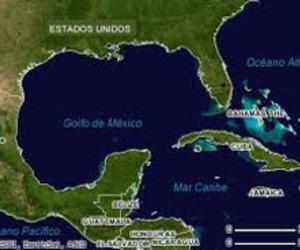US, Mexico Work to Raise Bar in Gulf
- Submitted by: manso
- Politics and Government
- 04 / 06 / 2011

By Jennifer A. Dlouhy. Houston Chronicle. Tuesday, April 05, 2011. Offshore drilling regulators from the U.S. and Mexico met Monday in a bid to strengthen standards governing oil and gas exploration throughout the Gulf.
U.S. Interior Secretary Ken Salazar said the goal was a single "gold standard" for all Gulf of Mexico drilling, whether in U.S. or Mexican territorial waters.
Salazar said the regulators were discussing how to share "best practices in the Gulf of Mexico" and "move forward in development of a single protocol between our two nations."
"We want to share the lessons learned from the Macondo Deepwater Horizon tragedy so we can move forward with the development of oil and gas," Salazar said in a conference call with reporters.
The initial talks were focused on what happens near the U.S. and Mexico, although Cuba has plans for drilling in its Gulf waters.
The co-chairmen of a presidential commission that investigated last year's oil spill and who took part in the meetings Monday said they are optimistic Cuba eventually will agree to baseline drilling standards adopted by the United States and Mexico.
"We would very much hope that they would ascribe to what is emerging as a globally accepted standard, much of it informed by the experience of the United States with the Macondo tragedy," said William Reilly, a panel co-chairman.
Concerns about Cuba
Bob Graham, the other co-chairman, a former Democratic senator and governor of Florida, said the Sunshine State is understandably worried about nearby drilling in Cuba's waters.
"There is concern about the prospect of drilling so close to our coast with a country that has not engaged in this previously," Graham said. He said he is optimistic that any pact with Mexico would "become truly a Gulf of Mexico agreement with any country in these waters being under the same standards."
Graham noted that the problem of setting common standards in areas where multiple nations are drilling is arising in many other places.
The meetings in Mexico City on Monday are a preview of an international summit with offshore drilling regulators and energy officials from more than a dozen countries scheduled for April 14 in Washington.
Separately Monday, Salazar took issue with Transocean's claim that 2010 was "the best year in safety performance" in its history, despite the explosion of its Deepwater Horizon rig in the Gulf of Mexico last April.
Transocean made the assertion in regulatory filings on Friday as partial justification for bonuses awarded top company executives.
Transocean owned the Deepwater Horizon drilling rig that was working on BP's Macondo well when it blew out last April, destroying the rig, killing 11 workers and triggering a massive oil spill.
"From what I have seen from various investigative reports," Transocean was "at some fault with respect to what happened at the Macondo well," Salazar said.
A Transocean executive apologized for the company's safety claim.
"We acknowledge that some of the wording in our 2010 proxy statement may have been insensitive in light of the incident that claimed the lives of 11 exceptional men last year, and we deeply regret any hurt that it may have caused," said Ihab Toma, the company's executive vice president. "Nothing in the proxy was intended to minimize this tragedy or diminish the impact it has had on those who lost loved ones."
Also Monday, House Democrats asked federal officials to investigate whether Transocean's decision to adopt three-week work shifts -- instead of the two-week schedule it had been using -- may have contributed to the spill.
Seven months before the disaster, Transocean switched its workers from a hitch schedule with 14 days on rigs followed by 14 days onshore to one with 21-day rotations.
"We believe Transocean's decision to move to the longer shift schedule should be closely examined," said Rep. Henry Waxman, D-Calif., and Rep. Diana DeGette, D-Colo. "Six of the 11 people who died aboard the Deepwater Horizon were on day 20 of their 21-day shift and a seventh was on day 19."
'Fatigue issues'
An assessment of workers on the Deepwater Horizon, conducted in March 2010 by Lloyd's Register and obtained by the lawmakers, found that employees were dealing with "fatigue issues" under the new 21-day cycles, especially during the final seven-day stretch.
According to the assessment, as quoted by Waxman and DeGette, one manager on the Deepwater Horizon said there was a "big difference in their attitudes on the third week," and another said the policy was "definitely increasing the risk of an incident." Houston Chronicle
Source: www.rigzone.com/news/article.asp?a_id=105817&hmpn=1
Comments